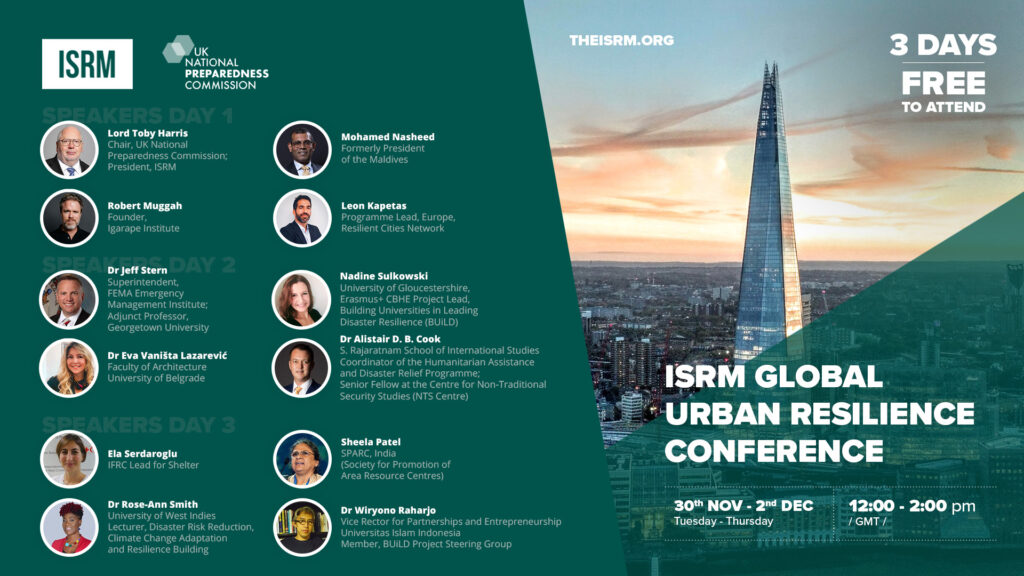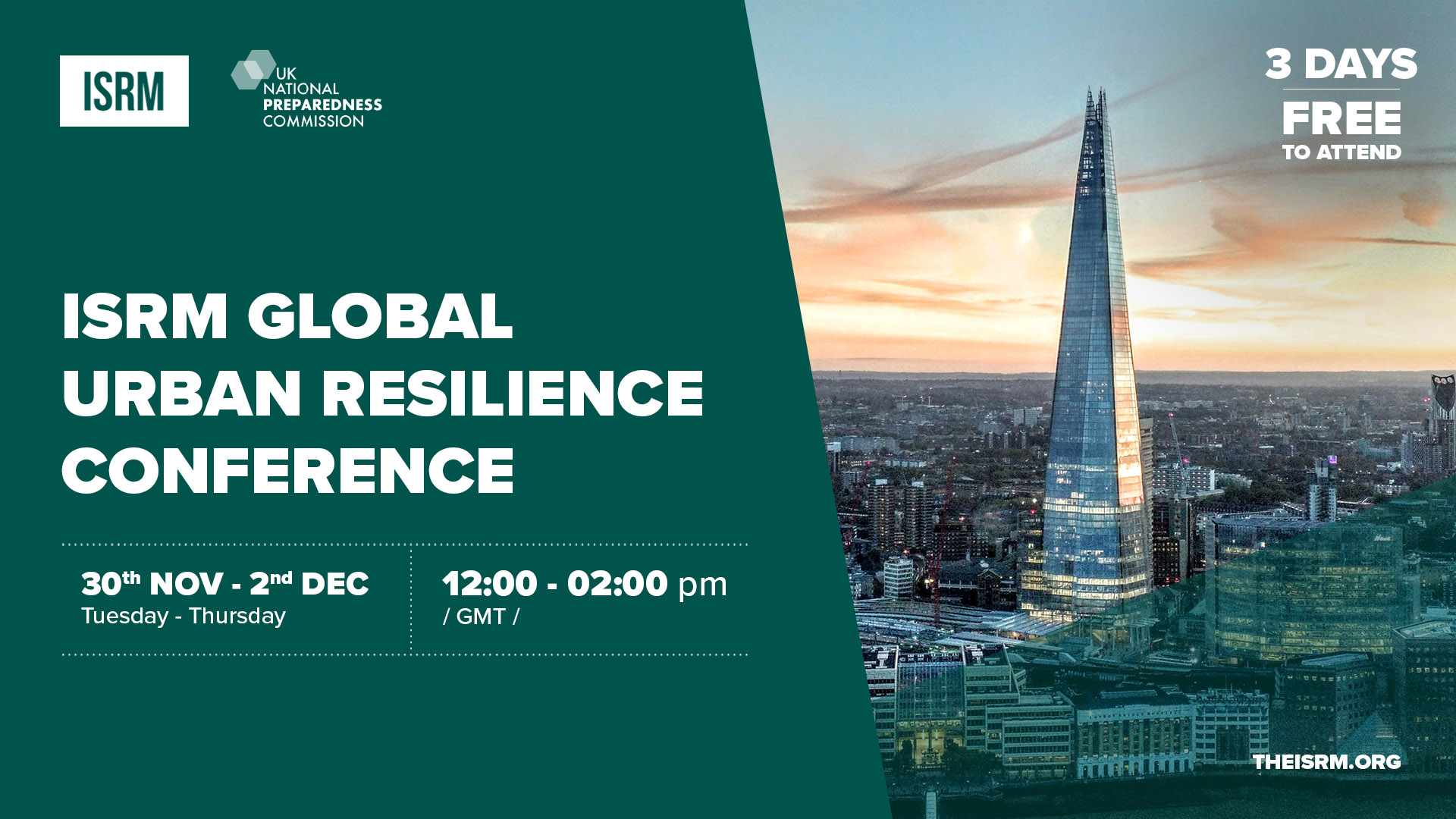The global climate change conference hosted as COP26 by the United Kingdom government in November 2021 was supposed to be the ‘last chance saloon’ for the global community to acknowledge the cliff edge of climate change impacts that we are collectively facing, and the need for urgent action on a comprehensive and collaborative basis to minimise, mitigate or manage the impacts and consequences that are already being faced on a planetary scale from the failure to have dealt with these issues in earlier times.
It is already clear that any substantive action will fail to reach the levels required, or to match the ‘disaster rhetoric’ that has been part of the on-going dialogue around all aspects of climate change and global impact for at least thirty years. In the first ISRM Crisis 2030 Manifesto, released to mark our launch in March 2019, we took as our leitmotif the words of the World Economic Forum Executive Director Klaus Schwab: ‘Our world currently stands on the brink of a mass political, technological & social shift which will transform our existence in ways we cannot yet possibly know’. Given that this was written exactly one year before the impacts of a global pandemic and unprecedented lockdown, it is only from the perspective of a world suffering from a range of ‘unthinkable events in inconceivable contexts’, that we can understand the true implications of such paradigm-shifting changes.
It is not too late to get things done. With human ingenuity, community engagement, a global perspective and the combined forces of the almost unlimited resources that we potentially have available – we are not powerless victims of some unseen force, but have the ability to take our own destiny into our own hands.
The missing link that is the gap between policy, aspiration and rhetoric on the one hand and the ability to have meaningful influence and impact on the other, is structure and methodology. It is the question of how we bring the solutions that would undoubtedly have significant impact on vast sections of the global community to those people who need them most, and in ways that have meaning and validity within the contexts that they are living in.

The ISRM Global Urban Resilience Programme
The ISRM Global Urban Resilience Programme is an 18-month project, commissioned by the UK National Preparedness Commission, that will combine academic research, engagements with urban planners and city managers around the world, community engagement, the identification of best practices and the establishment of a series of Regional Leadership Forums that will support the development of regional networks and the facilitation of multi-stranded dialogues between stakeholders across the region, and at all levels of society.
The programme will be based on the ISRM’s existing network of 30 International Chapters, as well as the multiple organisations that we have a working relationship with. The objective of the Global Urban Resilience programme is to identify best practices, support and enhance existing local, regional and global networks, and to help develop an understanding of the processes, frameworks and methodologies that can be utilised to introduce best practices into urban resilience and related programmes across the world in a structured and sustainable basis.

